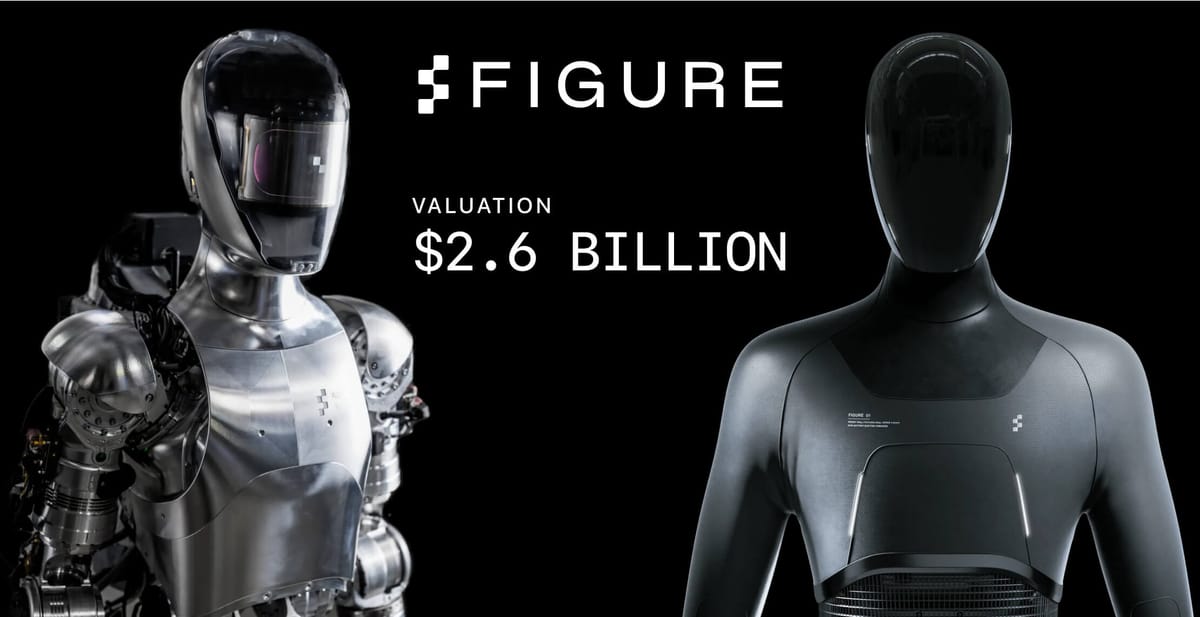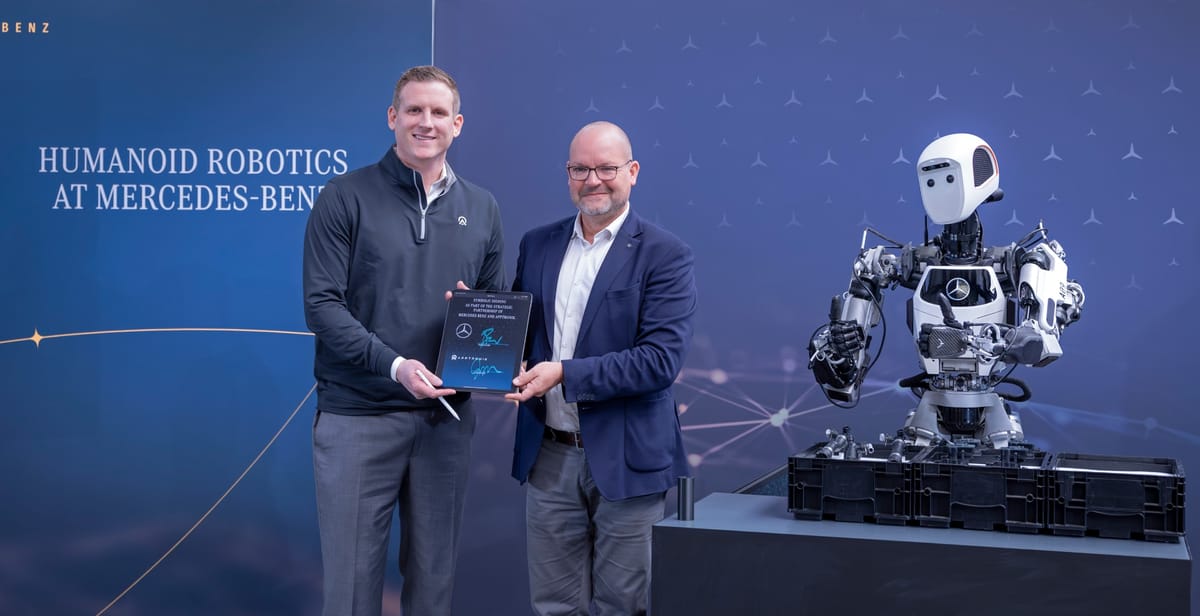Humanoid robots are actually showing up to work. While many robotics startups show off flashy demos that rarely leave the lab, Apptronik's Apollo robots are being tested in real factories, moving parts and conducting quality checks at Mercedes-Benz facilities in Germany and Hungary. This pragmatic approach has attracted an additional $53 million in funding from industrial heavyweights, bringing the Austin-based robotics company's Series A round to a substantial $403 million.
Key Points:
- Mercedes-Benz, Japan Post Capital, ARK Invest, and RyderVentures join Google in backing Apptronik
- Testing already underway at Mercedes-Benz factories in Berlin and Hungary
- Focus on logistics and manufacturing first, with healthcare and consumer applications as future targets
- Capital efficiency highlighted: Apptronik developed 15 robots and reached commercial deployment with just $28M before this round
The expanded funding round announced today adds notable strategic investors to Apptronik's cap table, including Mercedes-Benz, Japan Post Capital, ARK Invest, and Ryder's venture arm. They join existing backers B Capital, Capital Factory, and Google, who led the initial $350 million announced just five weeks ago.
Maybe more important than the nine-figure investment is the validation coming from actual deployment. Mercedes-Benz isn't just writing checks; they're putting robots to work at their Digital Factory Campus in Berlin and at their Kecskemet, Hungary facility.
"I'd like to see us find applications in areas where we face labor shortages—but of course first for the repetitive tasks, and then hazardous ones," said Jörg Burzer, Mercedes-Benz board member for production, during a media roundtable in Berlin.
The carmaker's approach offers a glimpse into how humanoid robots will likely enter industrial settings—starting with specific, constrained tasks rather than the general-purpose applications often hyped in promotional videos.
Mercedes is training Apollo robots through a process called "teleoperation," where human operators essentially puppeteer the robots through tasks, allowing the machines to learn movements before eventually performing them autonomously. The robots are currently handling basic logistics—moving components to production lines and performing initial quality checks.
"A practical and field-oriented mindset is crucial for success," noted Yuta Ogura, Senior Manager at Japan Post Capital, explaining their investment rationale.
The path to profitable deployment remains challenging. Burzer acknowledged that costs need to drop significantly before widespread adoption makes economic sense. "When costs reach a two-digit thousand-dollar sum—which is absolutely possible—it will become very interesting," he said, without specifying current pricing.
Apptronik's journey stands out for its capital efficiency. Founded in 2016 at the University of Texas at Austin's Human Centered Robotics Lab, the company developed 15 robotic systems—including NASA's Valkyrie robot—on just $28 million before this Series A. That track record likely helped attract investors now willing to pour nine-figure sums into the humanoid robotics race.
The company finds itself in increasingly crowded territory. Tesla continues work on its Optimus robot, while Figure AI recently secured $675 million from investors including OpenAI, Microsoft and NVIDIA. Japanese giants like Kawasaki Heavy Industries are entering the space, while Boston Dynamics maintains its head start with its Atlas platform.

"We're building a future where humanoid robots are not just tools, but trusted collaborators working seamlessly alongside people," said Jeff Cardenas, co-founder and CEO of Apptronik. "This investment is far more than capital—it's the foundation for strategic relationships that will accelerate Apollo's path to scaled production."
The company's strategy appears more focused on immediate commercial applications than some competitors. Last month, Apptronik announced a partnership with manufacturing giant Jabil to both build Apollo robots and integrate them into Jabil's own operations—potentially creating a pipeline where robots can help build more robots.
Even with $403 million in fresh capital, Apptronik faces significant challenges in scaling production, bringing down costs, and expanding its robots' capabilities. Yet the Mercedes deployment offers something increasingly rare in the AI hardware space: proof that the technology works outside controlled environments.
Whether Apollo and other humanoid robots can eventually handle the diverse, unpredictable tasks that would justify their humanoid form factor remains an open question. But for now, Apptronik's focus on getting robots into real workplaces—rather than just promotional videos—appears to be winning over both investors and industrial partners.


